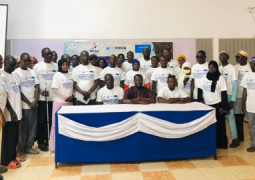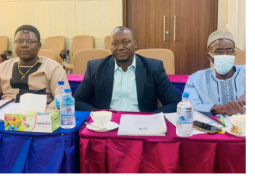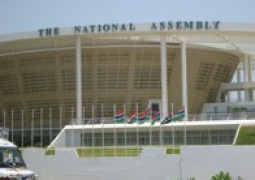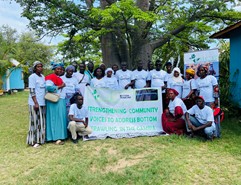
Mustapha Manneh, Founder and CEO of Their Voice Must Be Heard, opened the session with a stark message: “Gambia is still behind in the fight against Illegal, Unreported and Unregulated (IUU) fishing and bottom trawling. The communities affected are often not part of the conversation or solution.”
Manneh emphasised the glaring omission of a bottom trawling ban in the Gambia’s Fisheries Act of 2007, calling it a critical legal gap. “After today’s session, we hope participants will be empowered to push for policy reforms, including an outright ban on bottom trawling. This will protect our marine resources not just for today, but for generations to come.”
The workshop served as a rare space for fishers and activists to share lived experiences, voice frustrations, and co-create solutions. Participants called for stronger co-management of marine resources and more inclusive decision-making.
Omar Gaye, Public Relations Officer of the All Artisanal Fishers Cooperative and Vice President of the Platform of Non-State Actors in Fisheries and Aquaculture, stressed the need for better regulation and collaboration.
“In The Gambia, people are constantly complaining about fish shortages. But the problem isn’t just the availability of fish in the sea it’s the lack of coordination and regulation in the sector,” Gaye said.
Gaye pointed to climate change, poor market oversight, and weak communication between the Department of Fisheries and fisher organisations as key drivers of the crisis. “Anyone with money can just walk into the industry without proper oversight. That’s hurting both the market and the sustainability of our resources,” he warned.
He called for unity among stakeholders: “What we need is one strong voice, an umbrella under which we can all advocate for the future of our oceans and our communities.”
Read Other Articles In National News
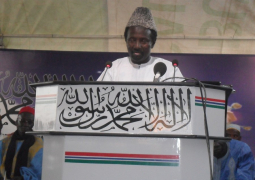
Eidul fitr message: Ramadan, a month of training, prayers and reflection
May 17, 2021, 2:34 PM
